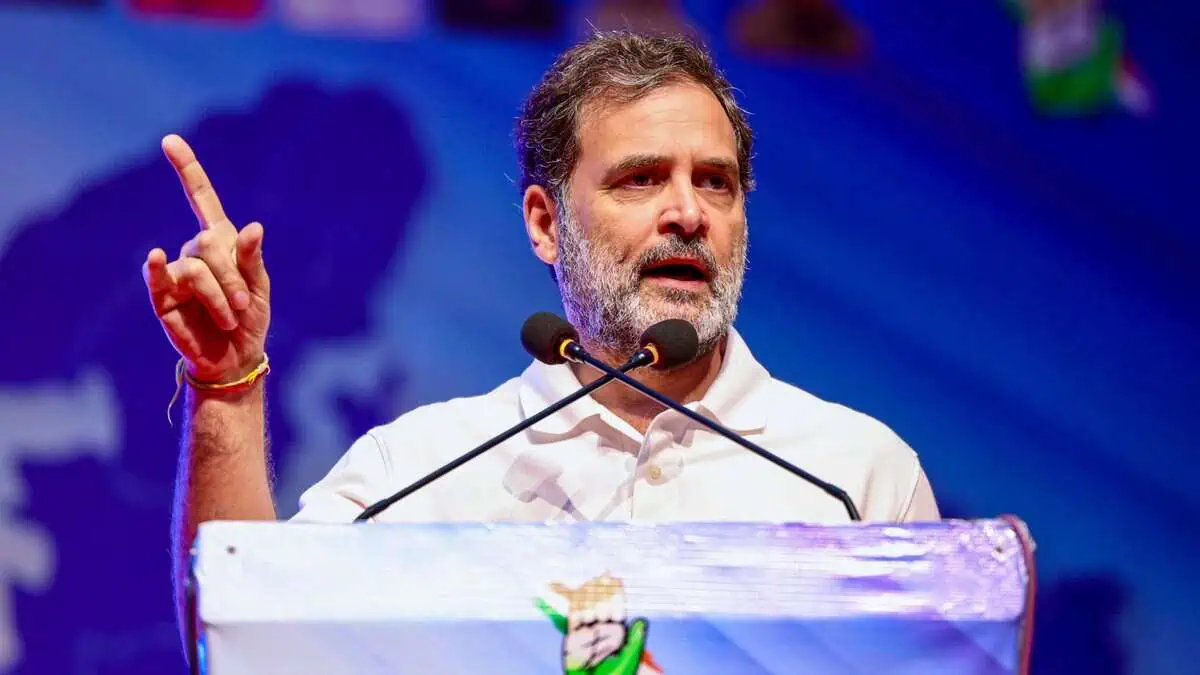
Congress leader Rahul Gandhi has been the Leader of the Opposition (LoP) for one year now. In this role, he plays a significant part in India’s Parliament. He holds the government accountable and speaks for the people’s views. Although the LOP role is not in the Constitution, it allows Gandhi to help choose senior civil servants and public officials and keep a close watch on the government. He can also sit on various parliamentary committees. Rahul wants to check the government’s power and has successfully paused legislative business when needed.
Although one year is insufficient to evaluate his performance fully, it does indicate his leadership capabilities. While assessing his performance, many questions arise.
How effective has he been as the LOP? Is he a good Parliamentarian? Has he succeeded in ensuring government accountability for its actions? Has he made a notable impact on his party’s approach to budget scrutiny? Furthermore, has he demonstrated the qualities of a role model during this period? Has he been capable of unifying the Opposition both within and outside Parliament?
Faces new challenges
Rahul’s political career has witnessed a mix of successes and challenges since his entry into politics in 2004. At the same time, controversies underscored the weight of his responsibilities. Sometimes he led the Opposition INDIA coalition in dharnas and protests in parliament. Still, at other crucial times, he was absent.
Rahul has held key positions in the Congress Party, including Party Chief and currently, Leader of the Opposition. He has worked behind the scenes, guiding the party through victories and defeats, while choosing not to take a ministerial role in the Manmohan Singh government from 2004 to 2014.
Supporters claim that Gandhi has effectively led a strong opposition during the 18th Lok Sabha. Significantly, since 2014, no opposition party has secured at least 10% of the 543 seats needed to be recognised as the Leader of the Opposition. For the past decade of Modi’s leadership, this position remained vacant.
Greater responsibilities
The lower numbers of the BJP meant greater representation
from the Opposition in various Parliamentary panels such as the Standing Committees and Select Committees.
In the 2024 elections, Dame Luck favoured the Congress Party, which won 99 seats, signalling a resurgence. The INDIA coalition, uniting opposition parties to defeat the BJP, secured 234 seats.
The BJP emerged as the single largest party, winning 240 seats, but they fell short of a majority. They sought support from the JD (U) and Telugu Desam to form a government, necessitating strategies to accommodate the sensitivities of other parties.
On his first day in the Lok Sabha, as LOP Rahul Gandhi, he emphasised that while the ruling coalition must adhere to the rule of law, the Opposition must raise pressing issues like the economic downturn, unemployment, caste census, and the farmers’ crisis.
Gandhi’s actions have not been in vain. His leadership has, in a way, compelled the Modi government to reverse its stance on conducting the caste census and the long-pending Women’s Reservation Bill. These are not just policy changes, but significant shifts that his leadership has influenced, underscoring the importance of his influence.
Opponents criticise Rahul
The BJP and the ruling coalition hold different views on matters of political importance. The Opponents criticise Rahul for going abroad too often, ignoring his duties as the Leader of the Opposition. He has undertaken 300 foreign trips in the past year. His attendance in Parliament was 51 per cent, and he participated in 8 debates, asked 99 questions, and did not bring any private member’s bills, according to PRS.
They point out that the Congress has lost many states during his leadership. Despite the high-profile propaganda, he was unable to persuade Prime Minister Narendra Modi to visit Manipur—his other pet subject of Adani, he has yet to succeed.
Rahul was not successful in uniting the Opposition. He faced more challenges in the post-2024 poll scene. The alliance had developed cracks after the polls. Parties like the Aam Aadmi Party, Samajwadi Party, and Trinamool Congress, among others, had differing opinions from the Congress.
Breaking apart
Since the State Assembly elections in 2024, the INDIA coalition has started to break apart. On the other hand, the NDA led by Prime Minister Modi remained intact. Also, while the INDIA coalition partners had been with Rahul on the LOP issue, they are hesitant to allow him to be their sole voice. This division reflects the pride of various regional leaders, who are reluctant to support Gandhi in this role.
Rahul faces a significant challenge as the Leader of the Opposition (LOP). He has four more years to show his effectiveness. To maintain unity in the INDIA coalition and attract more parties to it, he needs to make friendly gestures to his coalition partners. Rahul should be open to listening to their concerns.
While the Congress hopes he will become a role model, the BJP and its allies wish for his failure. It is clear that Rahul has gained confidence as LoP and might be much bolder in the next four years. For this, he must be a hands-on LoP and a 24/7presence.



